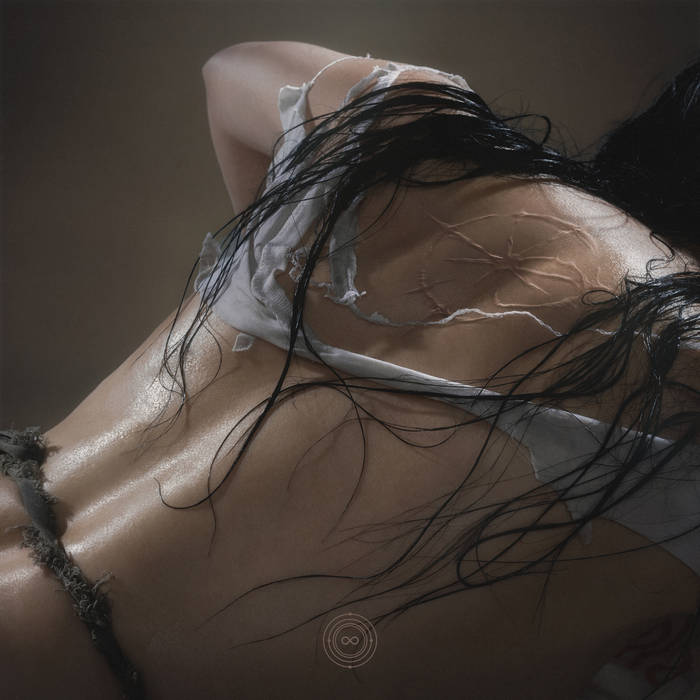Martyyna takes a unique approach to the voice. The Prague-based producer and DJ sees her vocals as a starting point to tell specific stories. It’s a means of confronting those scars of the album’s title: remnants of experiences. She treats her voice by cutting, manipulating, distorting, and looping it like any other instrument, which, combined with electronic music, results in a futuristic synthesis of the human and the mechanical.
Martyyna’s musical style is a fusion of industrial, irregular techno beats and spacious ambient pads, as evident in her previous work, Awaken. However Written In The Scars takes this fusion to a new level. It’s a paradox, with pulsating tracks and spacious compositions, creating a striking contrast. The interplay between ruptured beats, bass lines, and reverberating, synthy patches adds a unique and captivating character to the album.
The song ‘Glare’ is a prime example of Martyyna’s unique style. It’s a journey into an alchemical sound laboratory, where the synth parts and machine beats create a claustrophobic atmosphere. The hazy, siren-like vocals, surrounded by deconstructed techno beats, build up, and the music thickens until the bass line enters, adding another layer of depth to the composition. The music is dense but sensual, with a cloud of delay hovering over everything, creating a unique and captivating listening experience.
The way Martyyna weaves her vocals into the track can be reminiscent of the work of Lyra Pramuk with some hyper pop elements and cut-up phrases in the style of Enya or Madonna, including a post-club edgy narrative in which the formatting of the voice takes precedence over its lyricism. There is, however, often room for a pop outlook. ‘This Time’ opens to vocal reverberations, bird sounds, bubbling water, and glitches whose juxtaposition builds a post-apocalyptic atmosphere straight out of Mad Max. But then a mesmerising voice emerges, humming “This time / don’t make me cry” in a strictly song-like manner, as there is a certain lyricism with each successive repetition, a multi-layered vocalisation showing another aspect of this song: it’s a kind of lullaby.
Across the album, Martyyna focuses on different aspects of her vocals. On ‘Distorted’, cut-up voices, distortion, and trance beats are unveiled. In ‘Every Single Night’, she contrasts her vocals against a backdrop of shimmering industrial beats conquered by synth space. It is a music of emptiness, space, and reverberation. Everything wears a delay, suggesting a confrontation with oneself. Martyyna has a strong vision of what she’s doing. Even when guests appear – like Oliver Torr and Portento – their contributions feel less like star turns, more like extra colour added to round out the concept. They play the role of a shadow, a doppelgänger, that gives the album a further sense of drama at the end by adding another layer of sound.
These are mantra-like songs in which repetitions – a sentence, synth lines, multi-layered textures, reconstructed strings – allow one to digest and tame specific emotions. The music bubbles beneath the surface with different elements. It makes for a very cinematic album. I don’t know if the goal is to find a catharsis or to heal the scars, but going through this process is significantly contemplative and engaging.


